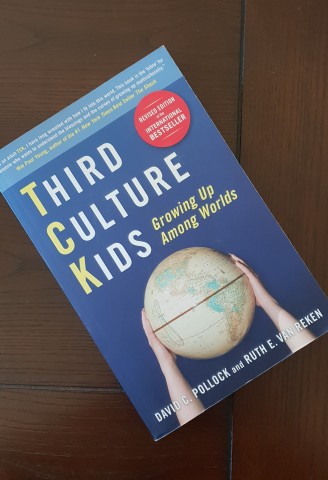I was honored to be in virtual conversation with the wonderful Ruth van Reken, the author of Third Culture Kids, a book that first helped me verbalize and normalize the experience of living a life of global transitions.
I have lived in 6 countries while also going through the usual transitions of life, getting married, having babies, new careers, first home, new social structures. While I started my journey a little later, a Third Culture Kid is defined as "A person who has spent a significant part of their developmental years outside of their home culture. Either the TCKs themselves or those around them are constantly coming or going. The people in their lives are always changing and the backdrop of physical surroundings may often fluctuate as well" at a time when they are still forming their world views. I am a parent of two incredible and now Adult TCKs.
While we focused mostly on the wonderful gifts of this experience, I know the question most avoided by my children and others like them was, "Where are you from?". My son had a short essay prompt for college "Describe the community you belong to" He wrote about the community of global nomads whose differences and shared experiences are what brought them together. As TCK's grow up they are usually grateful for the opportunities and perspectives their lives have made possible for them, often having a feeling of "representing something bigger than themselves" and being a bridge across cultures. And we as parents focus on helping them appreciate this lifestyle, often as a way of coping ourselves.
However it is also crucial to acknowledge the challenges and "losses" they face. Some of these losses are "hidden", identifiable only as an unexpressed feeling. As they grow older these become more prominent as TCKs face questions of identity and belonging. They may belong everywhere and yet nowhere. It is important that they are given the language and support to express their state, whatever it may be, without the thought that they are 'ungrateful' or 'unusual' for feeling that way.
The same goes for parents of TCKs and for adults living expat lives, we face our own challenges and questions of identity and belonging, often having to reinvent ourselves, transitioning careers, communities and relationships, without the traditional support systems of 'back home'. We spend a lot of energy maintaining traditions from the culture of our own birth and passing them along, hoping this will help our children maintain their identities. If we're honest it's more to help us hold on to ours. As the kids grow into young adults, parents are faced with accepting a new culture thats emerging which may be very different from our own. Parents may feel a sense of acute loss, the shared culture was a way for us to have our children understand us, relate to what's important for us, and know our stories. It was an anchor to preserve our own identities, which now have to be re defined as we try to find new ways to relate to our children and even to ourselves.
This brings me to the questions :
- If identity is deeply rooted in culture, what does this mean for you?
- What is your current sense of identity anchored in?
- What have you 'lost' or 'given up' in order to become adaptable? Both personally, and professionally?
- What have you gained or embraced by being a global nomad?
Every story is different, and most of us would not choose to have lived any other way. Even as we sometimes struggle to define ourselves, or feel the pain of moving once again, our unique stories empower and connect us all in an unspoken bond which transcends cultures and boundaries, making us even more resilient and ready for whatever's next.
- Faryal

